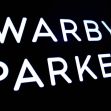Search Engine Optimization (SEO) is the bread and butter of many enterprises. When someone searches Google, Yahoo, or Bing, the budding entrepreneur will do anything to ensure that terms relating to their industry direct the potential customer to the company’s website. Being relegated to the dreaded “second page” of Google search results can spell the death of a small business. A recent intellectual property lawsuit accuses one business of taking the SEO hunt too far by manipulating search results so that one company’s name and logo appear with a link to its competitor.
One Click Traffic School (One Click), an online traffic school provider, recently filed a lawsuit alleging that competitor Traffic School 4 Busy People (Traffic School) improperly engineered Google search results to crib its intellectual property. One Click alleges that Traffic School manipulated its Google ad words and used “other means to misappropriate One Click’s name, goodwill, and customers.” The complaint demonstrates how a Google search will yield One Click’s company name and tagline in bright, bold letters alongside a link to Traffic School’s website.
One Click explains how it uses its website to generate business, which is supported by its “One Click Traffic School” registered trademark. The complaint alleges Traffic School “purchased, through a common search engine or engines (such as “Google” “Yahoo!” and “Bing”), keywords which are comprised, in whole or in part, of the Mark,” as well as used One Click’s trademark as a “heading to, link to, or within, Defendant and/or its affiliate websites, which are in direct competition with Plaintiff.” The conduct is “deceptive” and “misleads customers into believing falsely” that they are being directed to One Click when instead they are being driven to Traffic School.
The case presents an interesting twist on traditional trademark infringement claims. Trademark infringement involves the misuse of another company’s mark to advertise or sell its own products. Disney, for example, might sue another animation company for including the words “Disney Presents” in the title of a film, or for selling an unlicensed Mickey Mouse t-shirt. A plaintiff must show that the defendant used the plaintiff’s mark in connection with the sale or advertising of goods or services, and that the defendant’s use of the mark is likely to cause confusion as to the plaintiff’s affiliation with the goods or services being marketed.
Here, the defendant is allegedly manipulating its SEO keywords and ads in a manner meant to drive traffic to its website through the use of the plaintiff’s mark. SEO is extremely important for many businesses. Potential customers use search engines like Google to find purveyors of goods and services, and having your company’s website pop up first can mean the difference between a flourishing enterprise and bankruptcy. It’s well known that companies do their best to manipulate search results by using certain keywords on their sites, either on the site as seen by customers or in the “meta” descriptions pulled from a site’s HTML code. Companies can purchase ads from Google to ensure that their sites pop up at the top of the results for certain keywords or other parameters, and they can choose how their website title and other information are displayed.
Google maintains certain policies with regard to alleged trademark infringement in its ads, but those rules do not always help mark owners. The rules can also be difficult to parse. Google might prevent the use of a registered mark in a competitor’s ad title or ad copy, but it might not do anything to prevent the use of a trademark as a keyword (i.e., Dreamworks can have “Disney” as one of its keywords). Google might restrict trademarks from appearing in display URLs (the URL that appears in an ad), but they might not restrict trademarks in the second-level domains or post-domain paths of display URLs.
What does that mean exactly? For many trademark owners, it’s far from clear. Trademark holders are, in many cases, left to their own devices to scout out and stop infringing conduct. The rules of internet infringement are also much less well-established than more traditional forms of IP infringement. For example, a notable Second Circuit opinion held that it was not trademark infringement for an internet marketing company to cause a company’s competitors to appear in pop-up ads while a user browsed that company’s website. One Click’s claim may be viewed as a clear offshoot of the traditional prohibition on using someone else’s mark in your advertisements, or it may fall in one of the odd gray areas of web-based marketing.






